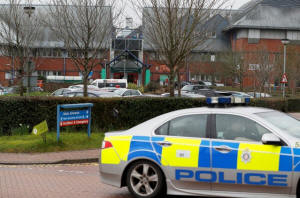|
Mark Sedwill said in a letter to NATO Secretary General Jens
Stoltenberg on Friday that email accounts of Yulia had been
targeted in 2013 by cyber specialists from Russia's GRU military
intelligence service.
Sedwill also said in the letter, which was published by the
government, that it was "highly likely that the Russian
intelligence services view at least some of its defectors as
legitimate targets for assassination."
The Skripals were targeted by what London says was a nerve agent
attack that left both of them critically ill for weeks. British
Prime Minister Theresa May has said it is highly likely that
Moscow was behind the attack.
Russian Foreign Minister Sergei Lavrov noted on Friday that a
report this week by the Organisation for the Prohibition of
Chemical Weapons (OPCW) did not confirm the origin of the poison
used against the Skripals.
Lavrov said the report only confirmed the composition of the
substance and that Britain's claim that it confirmed the UK
position on the Skripal case was overstated.
Separately on Friday, Russia's ambassador to Britain said he was
concerned the British government was trying to get rid of
evidence related to the case.
"We get the impression that the British government is
deliberately pursuing the policy of destroying all possible
evidence, classifying all remaining materials and making an
independent and transparent investigation impossible," Alexander
Yakovenko told reporters.
He also said Russia could not be sure about the authenticity of
a statement issued by Yulia Skripal on Wednesday in which she
declined the offer of help from the Russian embassy.
(Reporting by Kate Holton; Writing by William Schomberg and
Elisabeth O'Leary; Editing by Stephen Addison)
[© 2018 Thomson Reuters. All rights
reserved.] Copyright 2018 Reuters. All rights reserved. This material may not be published,
broadcast, rewritten or redistributed.
Thompson Reuters is solely responsible for this content.

|







